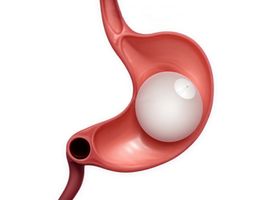Gastric Bypass Surgery in Turkey
Search and Compare the Best Clinics and Doctors at the Lowest Prices for Gastric Bypass Surgery in Turkey






Gastric Bypass Surgery at Healwide Clinic in Istanbul, Turkey





Gastric Bypass Surgery at Mita Health Group in Istanbul, Turkey





Gastric Bypass Surgery at Evren & Partners in Kocaeli, Turkey





Gastric Bypass Surgery at Global Medical Care (GMC) in Istanbul, Turkey





Gastric Bypass Surgery at formedi clinic Turkey in Antalya, Turkey





Gastric Bypass Surgery at Assoc. Prof. Dr. Cemal Kara Clinic in Izmir, Turkey





Gastric Bypass Surgery at Healthy Turkiye in Ankara, Turkey


Gastric Bypass Surgery at Izmir Medicalpoint Hospital in Izmir, Turkey





Gastric Bypass Surgery at MOI Health in Istanbul, Turkey





Gastric Bypass Surgery at Cayra Clinic in Istanbul, Turkey





Gastric Bypass Surgery at Prof. Dr. Burak Kavlakoglu - Obesity/Bariatric Surgeon in Istanbul, Turkey



Gastric Bypass Surgery at AVCILAR HOSPITAL in Istanbul, Turkey





Gastric Bypass Surgery at Memorial Kayseri Hospital in Kayseri, Turkey





Gastric Bypass Surgery at Medical Park Ataşehir Hospital in Istanbul, Turkey





Gastric Bypass Surgery at Medical Park Ankara Hospital in Ankara, Turkey





Gastric Bypass Surgery at Medical Park Antalya Hospital in Antalya, Turkey





Gastric Bypass Surgery at VM Medical Park Pendik Hospital in Istanbul, Turkey





Gastric Bypass Surgery at VM Medical Park Florya Hospital in Istanbul, Turkey





Gastric Bypass Surgery at Medical Park Gaziosmanpasa Hospital in Istanbul, Turkey





Gastric Bypass Surgery at VM Medical Park Bursa Hospital in Istanbul, Turkey
Our partner clinics in are accredited by the following associations











































































































































Compare Before & After Photos of Gastric Bypass Surgery



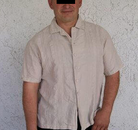
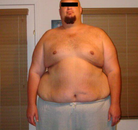
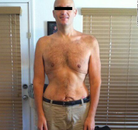


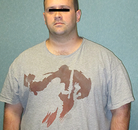
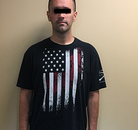


No Time?
Tell us what you're looking for and we'll reach out to the top clinics all at once
WHY US?























































































































































No Time?
Tell us what you're looking for and we'll reach out to the top clinics all at once
What does a Gastric Bypass Surgery Procedure Involve?
In a Gastric Bypass Surgery, the physician makes modifications to the patient's belly and small gut to regulate how they method food. This surgical treatment entails lowering the dimensions of the stomach to a small pouch approximately the scale of an egg, making the affected person experience full with less food. The health care provider then attaches the pouch to the middle part of the small gut in a manner known as Roux-en-Y. This causes the meals to pass the preliminary segments of the small gut, decreasing the quantity of calories and vitamins absorbed by means of the body.
This process calls for meticulous surgical talents and comprehensive perioperative care. Patients will commonly be positioned below preferred anesthesia at some point in the manner. Throughout the surgery, a group of healthcare experts will reveal the patient's critical signs and progress, ensuring the method runs easily.
How Long Should I Stay in Turkey for a Gastric Bypass Surgery Procedure?
The length of your stay in Turkey for a Gastric Bypass Surgery may additionally vary relying on some of different factors. Howeverr, patients are generally cautioned to live in the area for at least more than one week following the technique. During this era, healthcare providers will make sure the affected person is recovering properly with more than one follow-up visit. This period of stay also permits any complications or facet outcomes to be addressed promptly, in addition to enhancing the fulfillment rate of the surgical operation.
What's the Recovery Time for Gastric Bypass Surgery Procedures in Turkey?
Recovery instances for Gastric Bypass Surgery tactics can vary broadly among people, depending on factors like age, general fitness, and response to surgical operation. In preferred, preliminary recovery, which includes resuming regular everyday activities, might also take several weeks. However, full restoration encompassing substantial weight loss, lifestyle changes, and health improvements may take anywhere from 12 to 18 months. It is likewise critical for them to frequently go to healthcare carriers for tracking and follow-ups.
What sort of Aftercare is Required for Gastric Bypass Surgery Procedures in Turkey?
Aftercare for Gastric Bypass Surgery in Turkey typically involves a detailed and meticulous plan to make sure highest quality restoration. The aftercare plan will often include a rigorous time table of observe-up visits to healthcare providers for tests and updates. Immediately after the surgical treatment, the affected person's food regimen can be drastically modified to permit for restoration of the digestive system.
This usually transitions from liquids to pureed food, to tender foods, and subsequently to ordinary meals over some weeks. It's also crucial to combine a constant exercising regimen into the affected person's way of life to aid in effective weight loss. Mental health guide is another essential aspect of aftercare, which helps sufferers deal with emotions for the duration of this full-size life alteration. Combination of those constitutes the last key to long-time period fulfillment.
What's the Success Rate of Gastric Bypass Surgery Procedures in Turkey?
This Gastric Bypass Surgery is historically known for its excessive achievement rates. A massive quantity of sufferers lose an extensive quantity of their extra weight – on occasion 60–80% – inside 12 to 18 months of the manner. This weight loss can also result in improvements in weight problems-associated conditions like coronary heart disorder, hypertension, sleep apnea, and type 2 diabetes.
However, the success charge drastically depends on an affected person's adherence to the important lifestyle changes put up during the surgery. Regular uptake of a balanced weight-reduction plan, physical workout, and regular follow-ups with healthcare experts are critical for short-term weight loss and long-time period weight management.
Are there Alternatives to Gastric Bypass Surgery Procedures in Turkey?
Yes, there are numerous options to Gastric Bypass Surgery strategies. These basically encompass other kinds of weight-loss surgeries like Laparoscopic Adjustable Gastric Banding (LAGB), Vertical Sleeve Gastrectomy (VSG), and duodenal transfer with biliopancreatic diversion. Each of these surgeries has its own benefits and drawbacks, and the maximum suitable choice have to be determined upon after a thorough session with a healthcare issuer.
However, even earlier than thinking about surgery, individuals should attempt way of life changes via healthy weight-reduction plan and everyday workout. Prescription medicines for weight loss may also be explored. In certain cases of intense obesity, a healthcare provider might suggest an implantable weight management device. Always recall, it's vital to thoroughly understand the process, dangers, and lengthy-time period necessities before selecting any of these techniques.
This information has been accurately sourced and verified by a medical professional for its accuracy, however, we strongly recommend you to consult with your doctor before pursuing medical procedures overseas.

